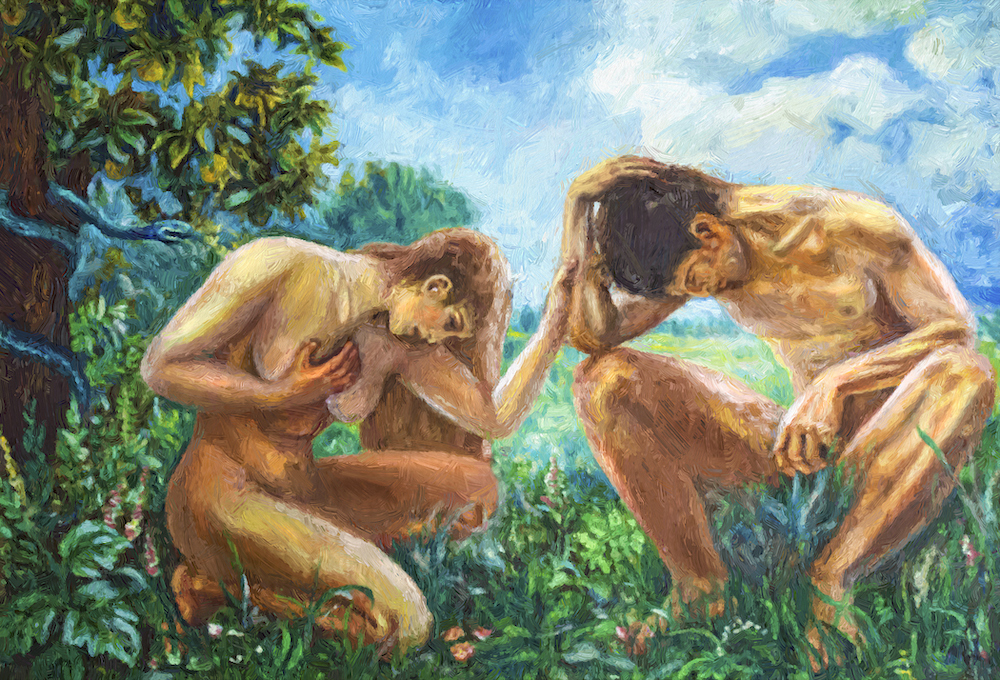Question:
How is one to accept the story of Adam and Eve if one believes in evolution? (Louisville, Kentucky)
Answer:
There is no conflict between the biblical story of Adam and Eve and the acceptance of the scientific theory of evolution. The first human bodies may well have been the product of the ordinary evolutionary process. But a Catholic is compelled to believe that the first human souls were created directly by God.
So, concerning biological evolution, the Church does not have an official position on whether various life forms developed over the course of time. But if that was the case, then they did so under the impetus and the guidance of God. Furthermore, the observation of Pope Pius XII in his 1950 encyclical “Humani Generis” still carries weight:
“The faithful cannot embrace that opinion which maintains that … Adam represents a certain number of first parents. Now it is in no way apparent how such an opinion can be reconciled with that which … the documents of the teaching authority of the Church propose with regard to original sin, which proceeds from a sin actually committed by an individual Adam.”
And so the Catechism of the Catholic Church says: “The account of the fall in Genesis 3 uses figurative language but affirms a primeval event, a deed that took place at the beginning of the history of man. Revelation gives us the certainty of faith that the whole of human history is marked by the original fault freely committed by our first parents” (No. 390).
Question:
Our pastor is rude (at times, obnoxious) to a parish volunteer who contributes a lot of work as an assistant to a paid parish employee. (That paid employee has told me that he himself has been written up by the same priest for insubordination — for telling the priest that he should be on time for confessions and that his remarks from the altar at the end of Mass are too long.)
Is there anyone who can put a stop to this? My friend, the volunteer, is afraid that if he files a complaint with the parish secretary, his colleague (the paid employee) might be punished. (Upstate New York)
Answer:
I am sorry if your pastor has acted rudely, and I apologize on his behalf. Priests are human and are often very busy — some with multiple parishes under their responsibility — but that doesn’t excuse them from treating each person with respect, especially someone who volunteers time to help the parish.
It would not be productive for you to involve the parish secretary in this matter; a parish secretary would normally have no role in a grievance like this. The most upfront way, of course, would be for you to seek some time with the pastor himself and explain, as a parishioner, your concern over what you’ve been hearing.
But if you are reluctant to do that, there are other courses of action. Most dioceses have a priest who serves as director of clergy personnel or vicar for clergy, and you might seek some time with him to share your thoughts.
Question:
I enjoy reading murder mysteries. I like seeing how the detectives work through the clues to solve their cases. Many of these stories contain graphic violence and sexual elements in these crimes.
Is it a serious sin to read these types of stories? (When I ponder this, I recall that even the Old Testament has very similar instances.) (Wichita, Kansas)
Answer:
By the fact that you even raise the question, you are committing no sin in reading murder mysteries. The key question has to do with why you are reading these books. If you were reading them to glory in the violence or to focus on and take pleasure in the sexual descriptions, then that would certainly be a concern.
But you have told me that your interest, instead, is to guess and observe how the detectives will weigh the clues. Here is what you might do: If you are unsure about your motives in reading such mysteries, you might consult with a priest or a spiritual counselor to help you sort that out. But my guess would be that you are doing nothing wrong.

